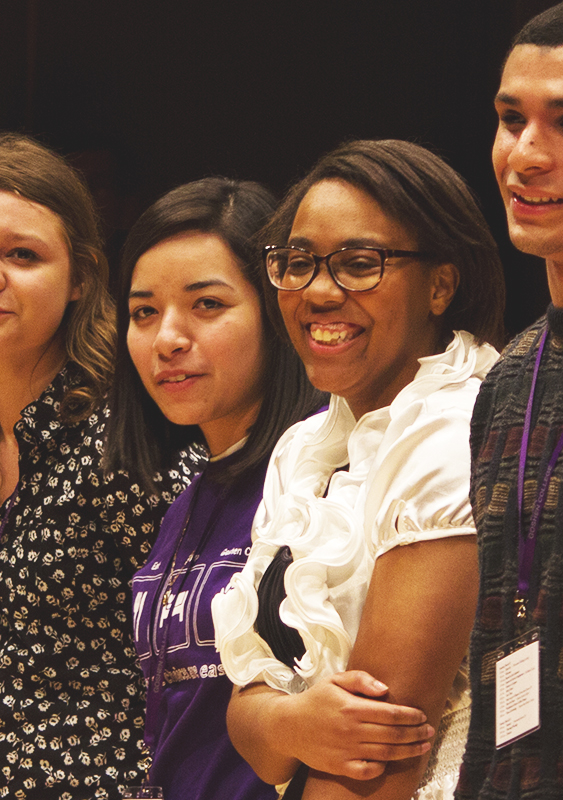When I was approached about sharing my view of diversity on campus, I responded initially with “Why me?” and “What do I have to contribute?” But rather than being disgruntled about being “tokenized” for the sake of the cause, I’ve taken it as an opportunity to speak up about
my experiences.It’s easy, I think, to critique “the machine” and say what’s wrong at Goshen. I think it’s a shame, truly, that we preach about intercultural communication overseas but can’t talk to our neighbors in Elkhart. We, as students and staff, voluntarily take classes and attend seminars about how to approach “the other,” but we can’t seem to validate the lives of those who are already here—and that’s an issue. We have domestic students whose cross-cultural experiences are just as valid as our international brothers and sisters. All of our stories are holy.
Placing Mikol Aspinwall on the front page [of last week’s Record] was a bold move, and definitely a step in the right direction. I’m proud of the work that went into recognizing him. But please notice the rest of us.
Assuming the official statistics are correct, there’s somewhere between 8 and 12 percent students of color on this campus. It feels like a small percentage, but considering that international students are around 10 percent of the population, roughly a quarter of this campus is POC. That’s incredible! The “U.S. News and World Report” says we rank 76th nationally for campus ethnic diversity. It’s interesting that we’re being noticed for a statistic that we don’t recognize internally.
I went on Yik Yak after the Black Student Union convocation last February, and was heartbroken after reading several statuses saying things like, “Why do they have to shove their culture down our throats?” Every student of color on this campus, whether domestic or not, lives each day at Goshen College on SST. Saying this makes you the reason this campus is not progressing. You are the reason we still live in fear of coming to this peace-church affiliated institution. You are the reason retention is so low. Please work at speaking and listening to us on campus, attending our events, and supporting us in validating our experiences.
And for those of you who do not fall into this category: thanks for being brave enough to respect us, to treat us as human beings.
If you want to do more, do it. You don’t have to be a student of color. You just have to speak up. Last year’s motto at MLK Day was Be Brave, Show Grace—something we need to do for the rest of our lives.
I used to be someone who was overlooked—if I was lucky. I had a history of being bullied. I was thrown down flights of stairs. People threw knives and bleach at me. And that’s here in the States. For most of my teenage years, I lived in fear. Then I became invisible, and I was okay with that.
Once I got to Goshen, all of that changed. I was asked to join different committees. In my four years here, I’ve been involved with the MLK Committee, the Admissions office and CORE curriculum restructure meetings. I’m your writing mentor and I might have been your TA or your tutor. Now I’m personally writing you this letter.
I want to let you know that I’m here. Just as I’m willing to learn from all of you, I think you could learn from me, and from all of us here.
If you get nothing else from this, remember the following things: acknowledge who we have on campus; be brave, show grace; get active. All of our stories are holy, and deserve to be respected. Yours, too. No one should have to validate their own existence, because God did that. You are here. And you are loved.



